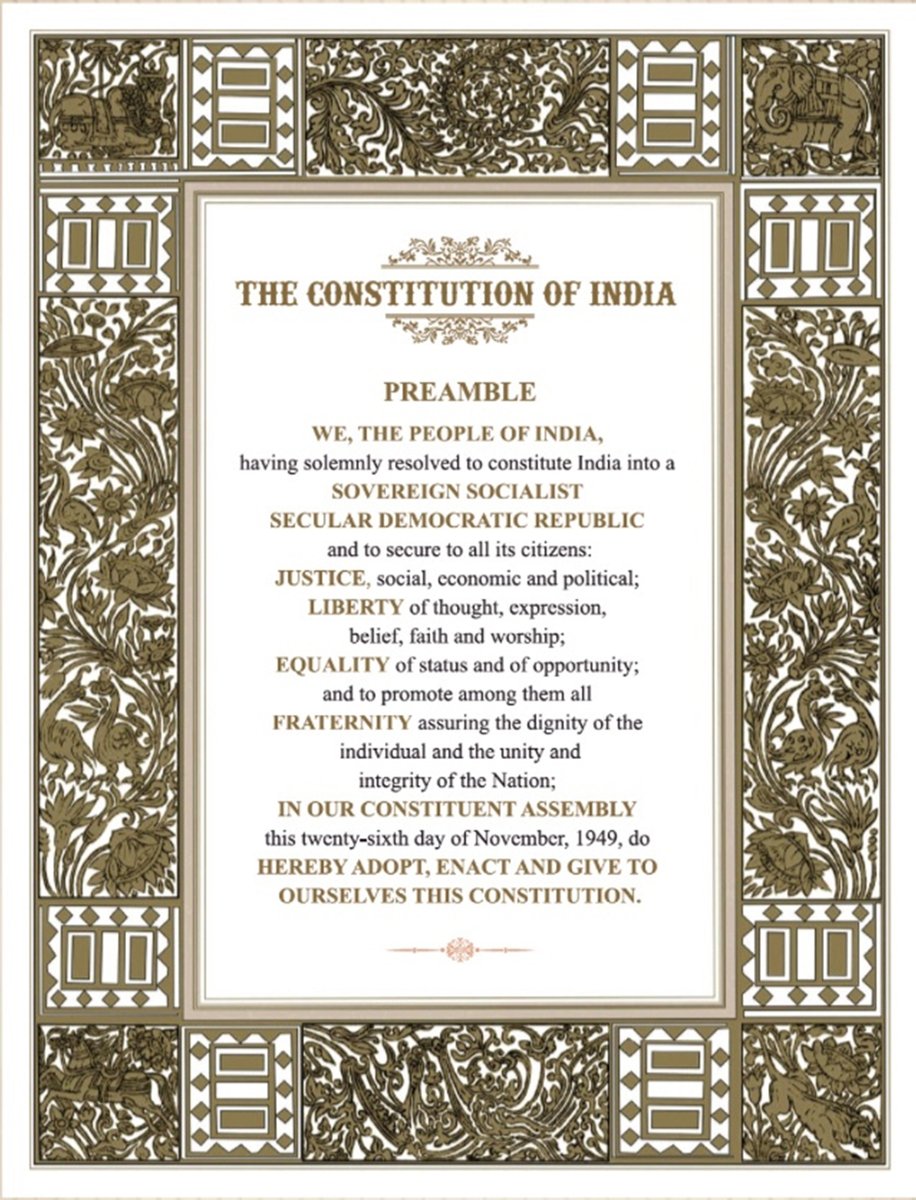As we celebrated the ‘Constitution day’ on 26th November, bragging about being the world’s largest democracy, the question we failed to ask ourselves is whether we have truly lived up to the essence of our constitution. The Constituent Assembly of India had adopted the Constitution on this day in 1949, and the current government decided in 2015 to observe this day annually as the Constitution Day.
Our Constitution declares India to be a “sovereign, socialist, secular, democratic republic and to secure to all its citizens justice, social, economic and political; liberty of thought, expression, belief, faith, and worship; equality of status and of opportunity; and to promote among them all fraternity assuring the dignity of the individual and the unity and integrity of the nation”. Even though our constitution offers so much, the printed media has repeatedly pointed out the inability to uphold them.
To quote Granville Austin from his book, Working a Democratic Constitution, the constitution can be summarized as having three strands: “protecting and enhancing national unity and integrity, establishing the institutions and spirit of democracy, and fostering a social revolution to better the lot of the mass of the Indians”. Not to point out to any particular tenure of a political party, but as we move forward, the above-mentioned points are somewhere losing their ethos.
India slipped 10 places to the 51st position in the 2019 Democracy Index's global ranking, according to ‘The Economist Intelligence Unit’. As per the latest Freedom House report, India had the steepest fall in its Freedom index among 25 democracies. We rank 142nd out of 180 countries in the global press freedom index, with Pakistan catching up right at 145th. Even if we set aside our daily observations and intuitions, the data is shocking. While Joe Biden, the president-elect of the United States, focuses on uplifting democracy, it is high time that “we, the people of India” get out of our somnolence and upheld the same.
The scrapping of article 370, the Citizenship Amendment Act (2019), and now the farming bills, in all of these cases the freedom of expression (Article 10 of the Human Rights Act and Article 19 of the Indian Constitution) was treated void by simply exploiting the loophole of National Security. Meanwhile, the scrapping was seen as a direct hit to the already umbrageous Kashmiris. The ruling party led states are more focused on how to protect ‘Gaumata’. Though our constitution offers a secular state but time and again a bias in the decisions are reflected. With back-to-back religion biased decisions, the factor of unity is questionable. Any kind of oppression is being squashed and is taking a major revolt to get noticed. The minorities are furious. Overall, we are amidst a chaotic mess lead by a set of bogus decisions, waiting to be backfired. As pointed out by Austin, the three strands, are vanishing as we are taking baby steps to a probable tyranny.
Having said that, the above-mentioned events are just a few out of the various other examples, and dealing with all of them would result in a dossier. Currently, we are losing the concomitance of the people and the govt, and the fate of our democracy is in a weak state unless we act upon it. Keeping in pace with the changing times, our constitution might need a complete change, with the basic framework intact. But still, it is difficult to say that we have matched the envision of the framers of our constitution, rather it is just a matter of time before we completely drift from it.


Comments
Post a Comment